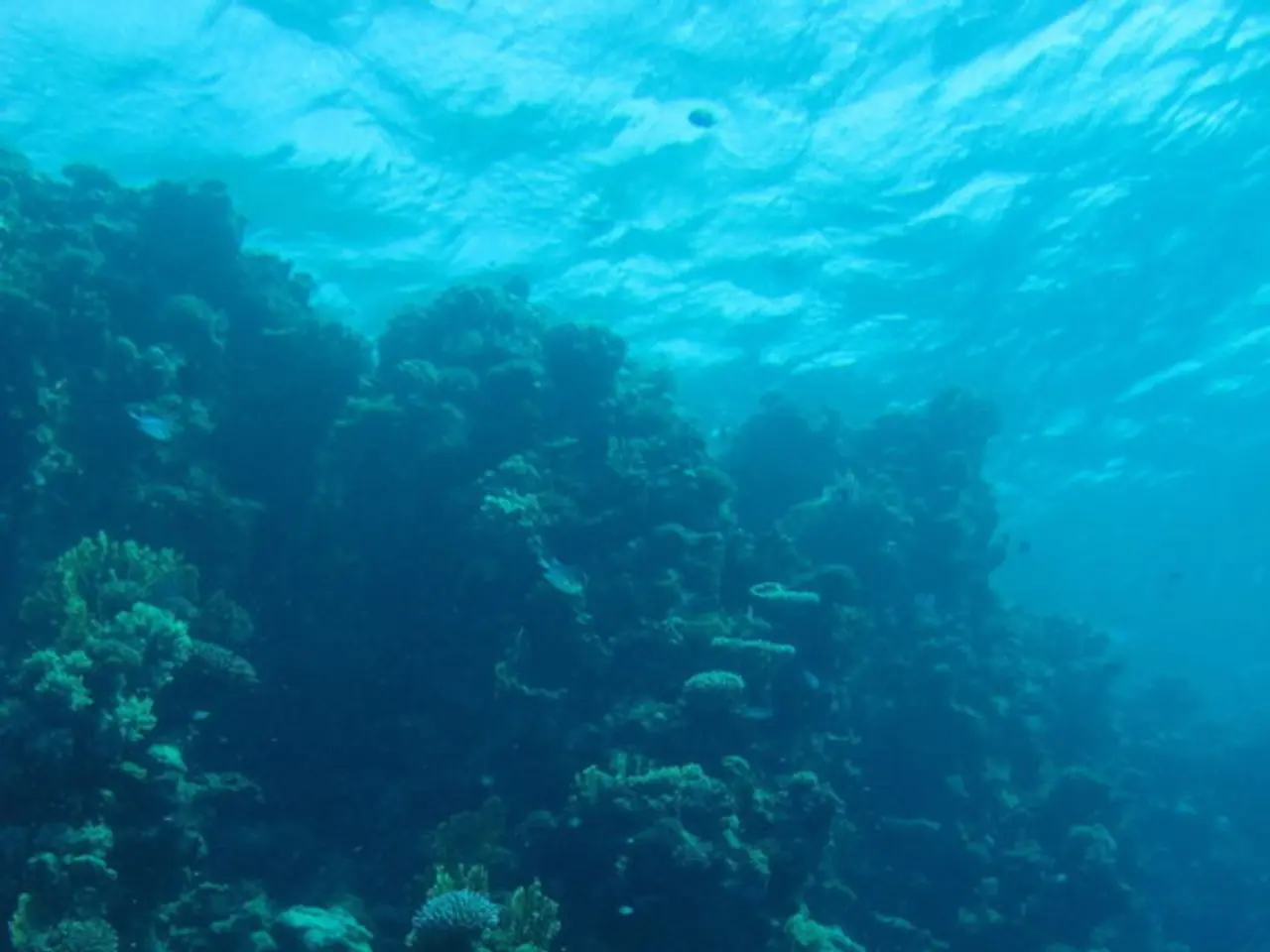Activist Promoting Ocean Preservation through Direct Methods in France
In the world of ocean conservation, Sea Shepherd has long been a force to be reckoned with. Founded by Paul Watson in 1977, the organisation was established with a bold mission: to go where no enforcement agency or NGO would - the high seas.
Sea Shepherd's early years were marked by aggressive direct action, aimed at protecting marine life and oceans. This approach, which included ramming ships, scuttling unmanned whaling vessels, and throwing rotten butter aboard boats, brought much-needed attention to their cause.
During their anti-whaling campaign, the presence of Sea Shepherd boats resulted in Japanese whalers catching only 19.1% of their self-appointed quota of fin and minke whales between 2010 and 2011. This significant impact on whaling activities was attributed, in part, to the organisation's unconventional tactics by Teale Phelps Bondaroff, an independent academic who studies the political evolution of Sea Shepherd.
As Sea Shepherd gained more funding and volunteers, the organisation transformed from a vigilante group to a partner of government authorities. This shift has not been without controversy, as some members worry that Sea Shepherd is losing its legitimacy, serving as a greenwashing tool for government institutions. This change has not been welcomed by everyone, with some branches leaving Sea Shepherd Global.
Lamya Essemlali, the founder and president of Sea Shepherd France, has emerged as a key leader resisting this global body's shift towards mainstream tactics. She remains a staunch advocate of direct action, as demonstrated by Sea Shepherd France's interception of illegal turtle poachers in Mayotte.
This debate within Sea Shepherd about whether to work with mainstream actors or defend the group's independence and commitment to direct action is not unique. Institutions responsible for protecting the planet and its oceans are not doing enough to avert irreversible ecological damage, according to scientists. The number of people suffering from eco-anxiety is rising, with many turning to direct action.
Direct action movements, such as Extinction Rebellion and illegal reintroduction of rare species, are on the rise. Sea Shepherd's campaigns and reality television show "Whale Wars" provided a front row seat to maritime crime, offering a glimpse into the darker side of ocean exploitation.
Over the past year, Sea Shepherd Global has shifted its approach to work with government and research institutions. This move has expanded Sea Shepherd's reach, particularly in West Africa, where the group welcomes aboard navy personnel and law enforcement.
Despite these changes, Sea Shepherd's commitment to using direct action to enforce international law at sea remains steadfast. In countries like Peru, Gabon, and Liberia, Sea Shepherd works with the national coast guards, where they are authorized to undertake many of the same responsibilities as state actors.
The impact of Sea Shepherd's work is not just limited to the high seas. In France, Sea Shepherd France, launched by Lamya Essemlali in 2006, is committed to protecting marine life in France's waters.
Time Magazine named Paul Watson among the Top 20 environmental heroes of the 20th century. As Sea Shepherd continues to evolve, the organisation's legacy and the debates surrounding its tactics remain crucial in the ongoing fight for ocean conservation. In September, Lamya Essemlali and Sea Shepherd Global are set to face each other in a court of law over the right to display the Sea Shepherd logo, a testament to the organisation's enduring controversy and influence.








